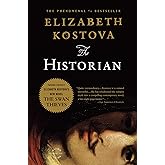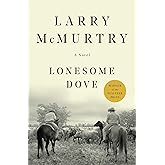
Download the free Kindle app and start reading Kindle books instantly on your smartphone, tablet, or computer - no Kindle device required.
Read instantly on your browser with Kindle for Web.
Using your mobile phone camera - scan the code below and download the Kindle app.

OK
 Audible sample Sample
Audible sample Sample 


The Crimson Petal and the White Audio CD – Unabridged, January 1, 2004
- LanguageEnglish
- PublisherRecorded Books
- Publication dateJanuary 1, 2004
- ISBN-101402596286
- ISBN-13978-1402596285
Similar items that may ship from close to you
Product details
- Publisher : Recorded Books; Unabridged CD Audiobook edition (January 1, 2004)
- Language : English
- ISBN-10 : 1402596286
- ISBN-13 : 978-1402596285
- Item Weight : 1.15 pounds
- Best Sellers Rank: #6,818,695 in Books (See Top 100 in Books)
- #9,658 in Historical British & Irish Literature
- #65,602 in Books on CD
- #225,462 in Literary Fiction (Books)
- Customer Reviews:
About the author

Michel Faber (born 13 April 1960) is a Dutch-born writer of English-language fiction, including his 2002 novel The Crimson Petal and the White.
Bio from Wikipedia, the free encyclopedia.
Customer reviews
Customer Reviews, including Product Star Ratings help customers to learn more about the product and decide whether it is the right product for them.
To calculate the overall star rating and percentage breakdown by star, we don’t use a simple average. Instead, our system considers things like how recent a review is and if the reviewer bought the item on Amazon. It also analyzed reviews to verify trustworthiness.
Learn more how customers reviews work on Amazon-
Top reviews
Top reviews from the United States
There was a problem filtering reviews right now. Please try again later.
At the outset of 'Crimson Petal..' it is made very clear that we are in the hands of a time-traveling tour guide, as though we're ghosts from the future that can follow undetected into the most intimate chambers of inhabitants of 1870's London. Also, as anyone who has read at least a few reviews of the novel has gathered, it not only has no alternative ending but it has NO conclusive ending. Actually, it does have a definite ending even if loose threads are left loose and we are left wondering about the fates of the characters 'Gone With the Wind' is inconclusive in that, while we know that Rhett Butler has left Scarlett O'Hara, seemingly permanently, we don't know if Scarlet will win him back as she claims on the final page.
It is also no surprise that this novel provides a contemporary's depiction of sexual matters that would not have been permitted in any reputable fiction of the Victorian era. We are introduced to a house of prostitution in the slums of 1875 London as well as some of its inhabitants: Caroline, a fallen woman of little education, her younger, yet better educated and professionally adept friend Sugar and Sugar's mother, Mrs. Castaway, the withered madam of the establishment.
On the other side of the tracks, we meet William Rackham, the literary son and heir to his father's perfumery. Despite having a wife and young daughter, William is reluctant to seize the reins of responsibility and take charge of the business. He spends many of his evenings in the company of his former classmates, the carousing, witty pair Bodley and Ashwell. The older son Henry, the son to whom the business should reasonably be handed down to, is a pious man who has never been temperamentally suited for business and feels that he would be better suited to God's calling, if he could be certain that God was really calling him, which he is not due to libidinous thoughts of his friend and fellow fundamentalist Emmeline Fox, whose ministry is to rescue fallen woman.
Seeking sexual gratification and a way to rescue him from his boring life, William seeks out Sugar, whose reputation for meeting ALL of a man's needs he has heard of from an alternative London guidebook, 'More Sprees in London—Hints for Men About Town, with advice for greenhorns'. When he finally meets her he is smitten, not only because she possesses an almost extrasensory awareness of what will satisfy him but because she is very intelligent and literate and almost as well-read as him. He is not aware that she spends most of her early mornings after a night's work writing a lurid novel of a prostitute's revenge. Her effect on William is spectacular. He floats on air and assumes a new lease on life and finally slips into the role of perfume manufacturer that his father envisioned for him. Soon William buys out her mother's investment in her, installs her in a small apartment closer to the respectable part of town and provides her with free room, board and food as well as a generous allowance, all for being available whenever he comes to call on her. Later this evolves into a position as the live-in governess of his daughter Sophie.
Contrasted with William's other life is that of his ailing wife Agnes, often bedridden and afflicted with fits and delusions although periodically able to function in high society. We see her inner struggle through glimpses of the diary she has kept since she was a child. In many respects she has remained a child and, like many women of the time, her fate is controlled first by her stepfather, then her husband. Even motherhood has not altered her self-centered selfishness. She wants nothing to do with her daughter. William is not particularly happy with the current governess and finds a reason to dismiss her and install Sugar in the position. Theoretically, it's an ideal situation. He has his lover installed as a full-time resident and employee of his household and his ailing wife stays in her room and never crosses paths with Sugar, who is busy instructing Sophie. I will say no more other than that the situation quickly becomes much less than ideal. In many respects the narrative direction is a reverse of the governess/employer relationship in 'Jane Eyre.'
Henry, although insufferably pious and guilt-ridden, provides an interesting contrast with the narrative of William and Sugar. His own platonic relationship with Emmeline also forms a symmetrical contrast to that of William and Sugar. I was somewhat disappointed that his fate was not entwined with theirs as I thought it would be.
Although the novel is set in the Victorian era and the characters are fully embodied products of their age, the prose style is decidedly not Victorian. There is no attempt to mimic the ornamental stylistic flourishes of many of the nineteenth century authors and, despite the novel's great length, the pace of the narrative flows quite swiftly.
Faber also succeeds in avoiding predictability of plot. Up until the last thirty pages or so this reader could not second guess the author and feel that he claimed to know with near certainty the outcome for all of the characters. For those who were frustrated with the lack of resolution, Faber published a collection of stories, 'The Apple: Crimson Petal Stories,' which I have purchased and intend to read although my impression is that, while it answers some questions about the fates about some of the characters, it doesn't attempt to tie up many of the loose ends left at the end of 'The Crimson Petal…' For me, the abrupt departure and lack of resolution is utterly authentic and completes the illusion of our journey back in time. Our tour guide has shown us all we need to know of this world and we are deposited at its conclusion safely back into the comfort of our 21st century lives.
Main characters include; William Rackham a prig who never quite got past being a "fraternity boy", deludes himself about his talent as a writer, is a possible heir to a manufacturing fortune but lacks either motivation or interest in the business until ...; Agnes Rackham, William's wife who is very "brittle" and a psychologists wet dream, possessed of more issues than Time magazine her mental health issues are organic in nature and greatly exacerbated by the examinations and treatments she is forced to undergo at the hands of the family physician; Henry Rackham, William's brother who aspires to the cloth but is deeply troubled confrontations of the flesh and tormented by the conflagration he believes will engulf him for his impure thoughts and obsession with things "low" and/or sensual; Emmiline Fox, a widow who Henry believes to be possessed of some pulchritude but others find to be quite homely, she is the object of William's base desires but is oblivious to his intentions because she is consumed by her attempts to rescue fallen angels, i.e. prostitutes. Last but by no means least is Sugar, an extremely well read 19 year old prostitute who works out a brothel run by he mother the somewhat terrifying Mrs. Castaway. Sugar's "fame" is based on her willingness to do "anything you desire", when the Fates look down on Sugar they will find her ready for the wand of change to christen her head. Her association with William Rackham changes the lives of every character in the book.
The many voices construction may, on its face, seem awkward but Farber pulled it off neatly. I forget the term to describe the device but inside the story we are also treated to passages from the Diary kept by Agnes, the sermons written by Henry and the (graphic) novel being written by Sugar. I always had the feeling that the narrator was pulling my leg just slightly each time it spoke and demonstrated its finely honed sense of sarcasm. Some time ago I saw the mini-series created from this book and the color and tone injected by the narrator was conspicuous by its absence.
Do not expect a happy ending. In fact, I expect most readers will find the ending far too ambiguous for their liking. But then, isn't life like that; despite our best efforts its all so ... ambiguous.
Top reviews from other countries
I don't know how to classify this story. When I first started reading it again, I kept thinking how very different it was from Faber's other book, Under the Skin. But the more I read, the more the similarities struck me. Both of the main female protagonists are repressed, abused by men, forced to represent themselves to the world in a way that distorted their 'real' selves. They survived in a man's world only on men's terms, giving the impression that they were happy to do so, but inside - my goodness, inside the bile and the bitterness and the resentment that seethed. Not that either of these women were perfect. Far, very far from it. Sugar is a product of her horrible upbringing. She's grasping and she's cold. She has no idea how to express or feel affection. She is out to get what she can get. At first. It's not love for her protector that saves her though (thankfully) but 'love' of the two women who come into her life - Agnes and Sophie. Sugar 'saves' them in her own unique way. We assume. Of course we'll never know, because of that controversial ending. And by the end of the book, Sugar has also - not quite saved, but started to become herself. To cast off the disguise she's been forced to wear as a prostitute in various forms, and to define herself.
Not sure if this makes any sense. I don't want to give anything of the book away - lucky you, if you haven't read it. It's also funny, and it's sad, and it makes you so angry, and it is a bit disgusting. It's compelling, beautifully written, and it's most importantly, a very, very satisfying story. Did I say I loved it? Fab!












